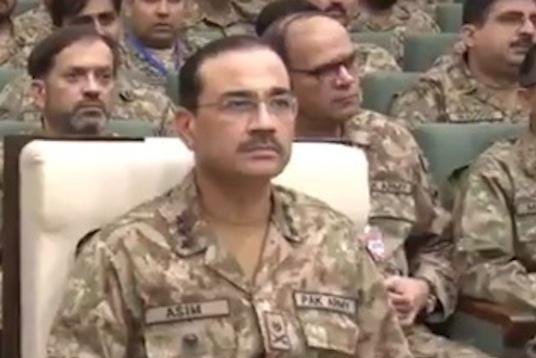A former spy, Lt. Gen. Asim Munir, on Thursday was named Pakistan’s new army chief after months of speculation. Photo by Pakistan Armed Forces/Twitter
Nov. 24 (UPI) -- Lt. Gen. Asim Munir, the nation's former spy chief, on Thursday was named Pakistan's new army chief after months of speculation.
Munir was approved by Pakistani President Arif Alvi after being nominated for the post by Prime Minister Shehbaz Sharif.
He replaces Gen. Qamar Javed Bajwa, who retires next week. The job is widely seen as Pakistan's most powerful government posting.
Munir is the country's most senior general and closely aligned with Bajwa. He was picked from a list of six candidates.
Bajwa and Alvi had reportedly been sparring over who would get appointed to the position, with each favoring someone more closely aligned to them politically.
Once he takes office, Munir will oversee relations between neighboring India and Afghanistan.
He takes over as the country is continuing to deal with the fallout of devastating floods during its most recent monsoon season. More than 1,300 people died within a few weeks of the start of monsoon season while millions have been displaced.
Pakistan is also in the midst of an economic crisis, coping with soaring inflation.
Pakistan's former prime minister Imran Khan has publicly clashed with the new government and military over filling the army's top job.
Khan was ousted from power by his opponents in April. Last month, the government banned him from holding office in the country for at least five years due to a corruption scandal that came to light following his ouster.
Though technically separate, the position of army chief often wields significant political power in Pakistan. The army has seized power three times in Pakistan's history and directly ruled the country for almost four decades.
"It's not a political position but if you look at the post, this position has had a political role," Fahd Husain, a special adviser to the prime minister, told the BBC in an interview.
"Our democracy is weak. The military has always tried to exploit that," added Talat Masood, a former lieutenant general in the army.















